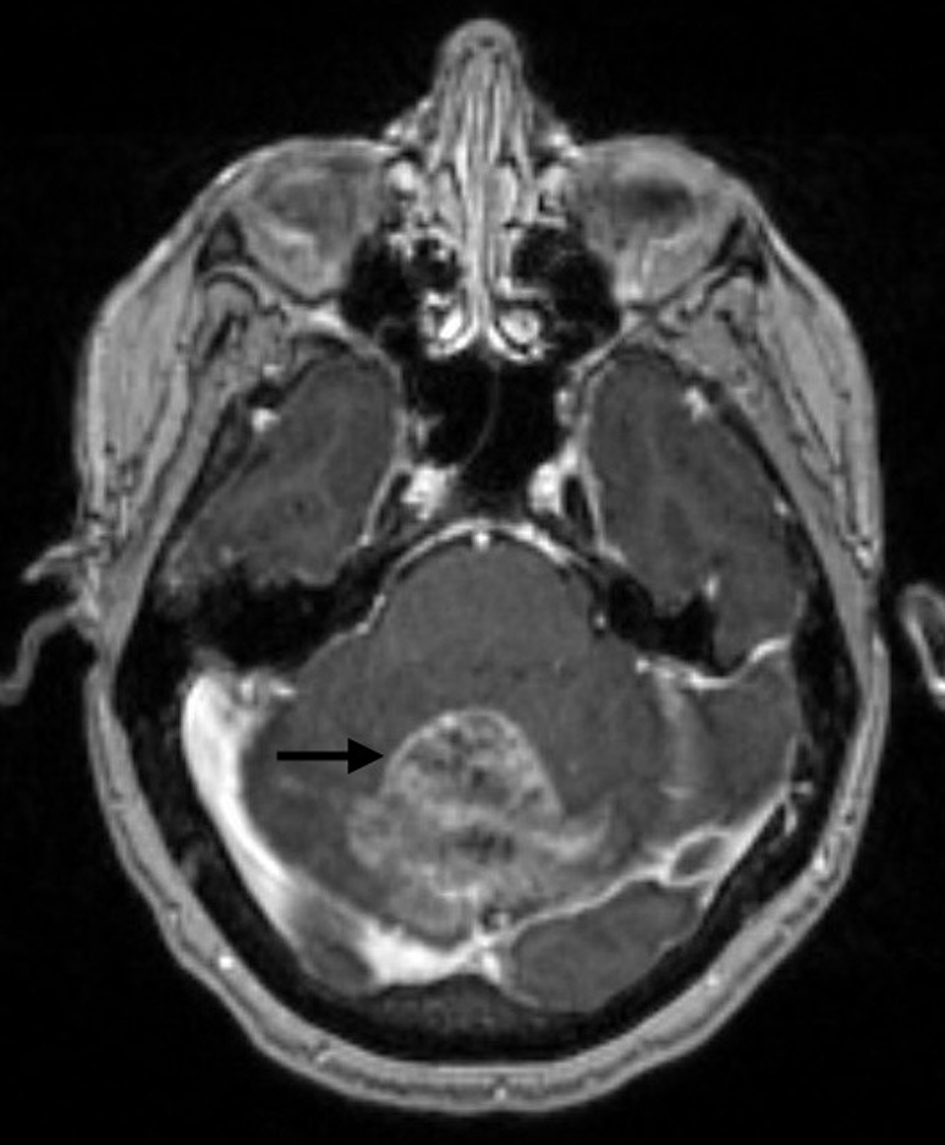
Figure 1. Brain MRI with and without contrast showing a 4.8 × 4.2 × 4 cm well-circumscribed enhancing mass (arrow) in the superior aspect of the left and right cerebellar hemispheres. MRI: magnetic resonance imaging.
| Journal of Medical Cases, ISSN 1923-4155 print, 1923-4163 online, Open Access |
| Article copyright, the authors; Journal compilation copyright, J Med Cases and Elmer Press Inc |
| Journal website https://jmc.elmerpub.com |
Case Report
Volume 16, Number 6, June 2025, pages 212-221
Long Durable Response With Trastuzumab Deruxtecan Monotherapy in a Triple-Negative Metastatic Breast Cancer Patient With Human Epidermal Growth Factor Receptor 2 Mutation: A Long-Term Follow-Up and Literature Review
Figures

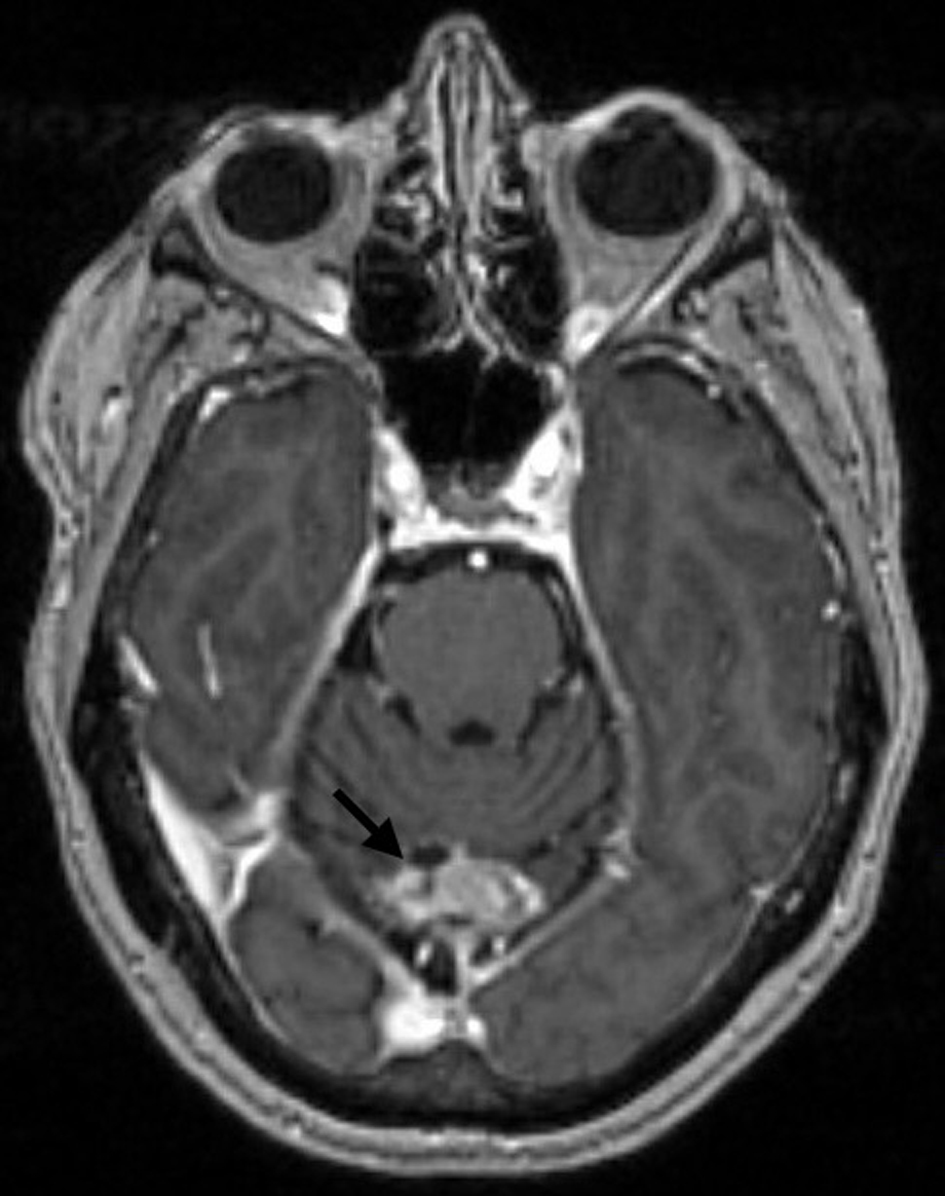
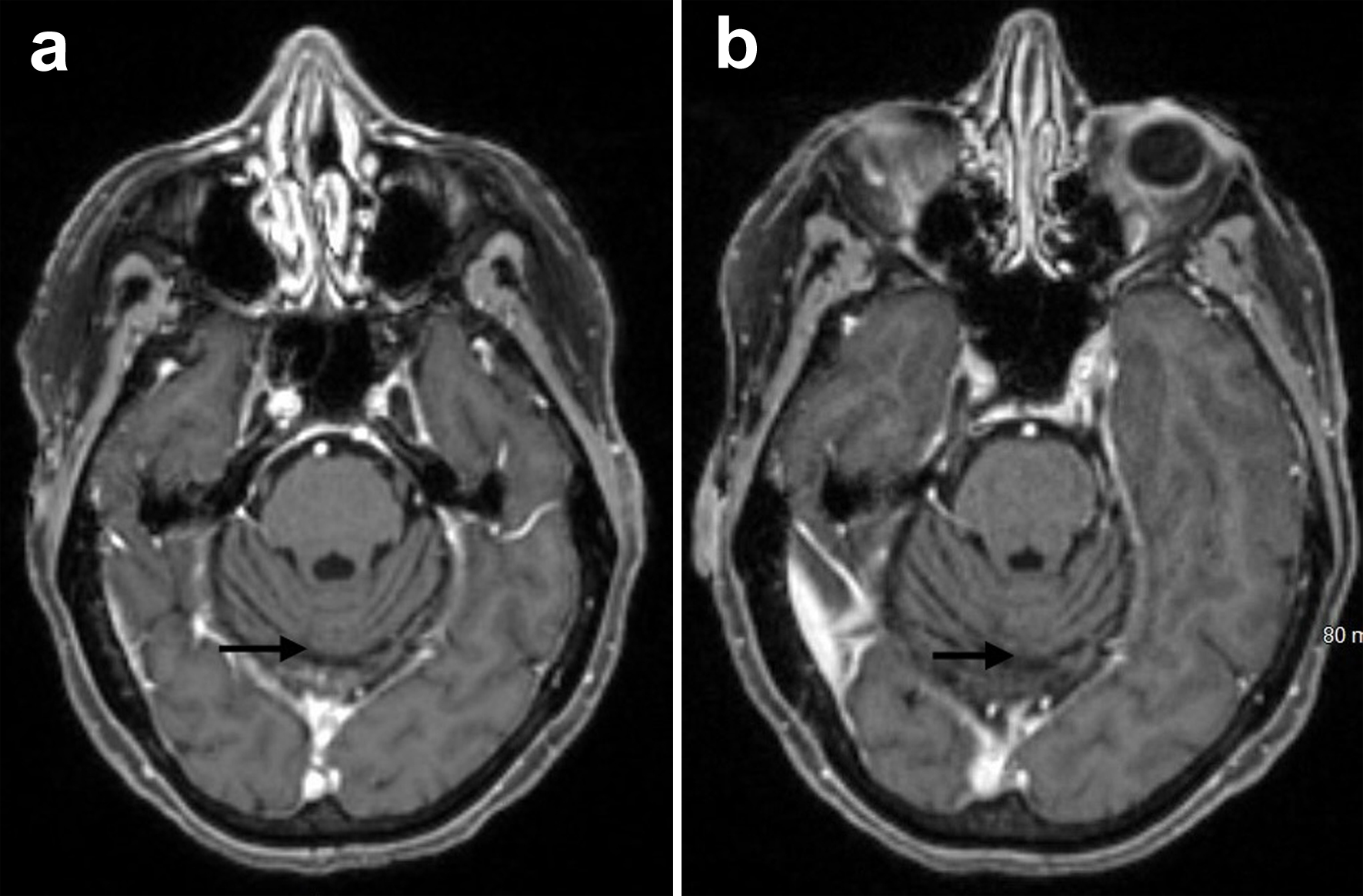
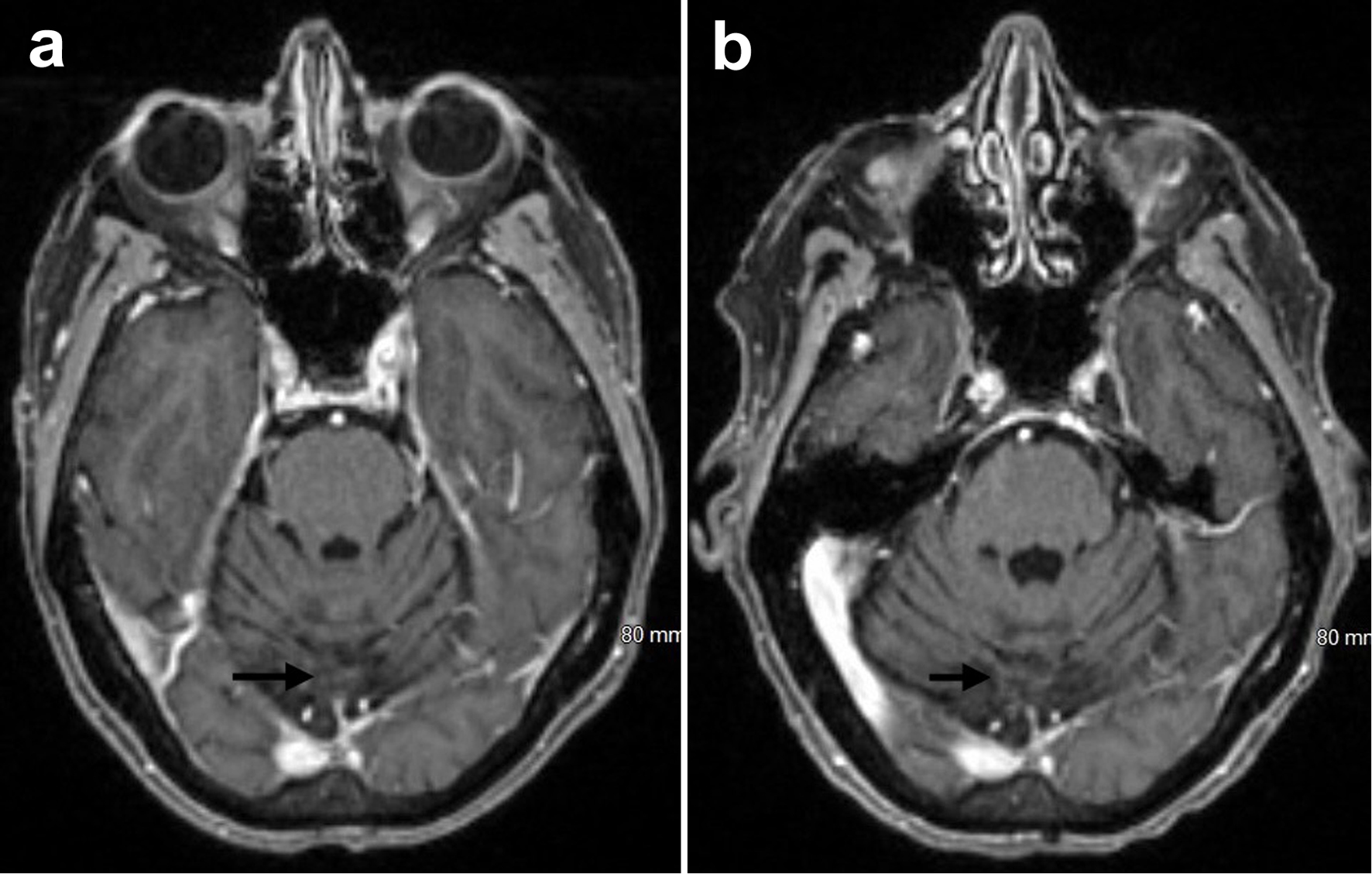
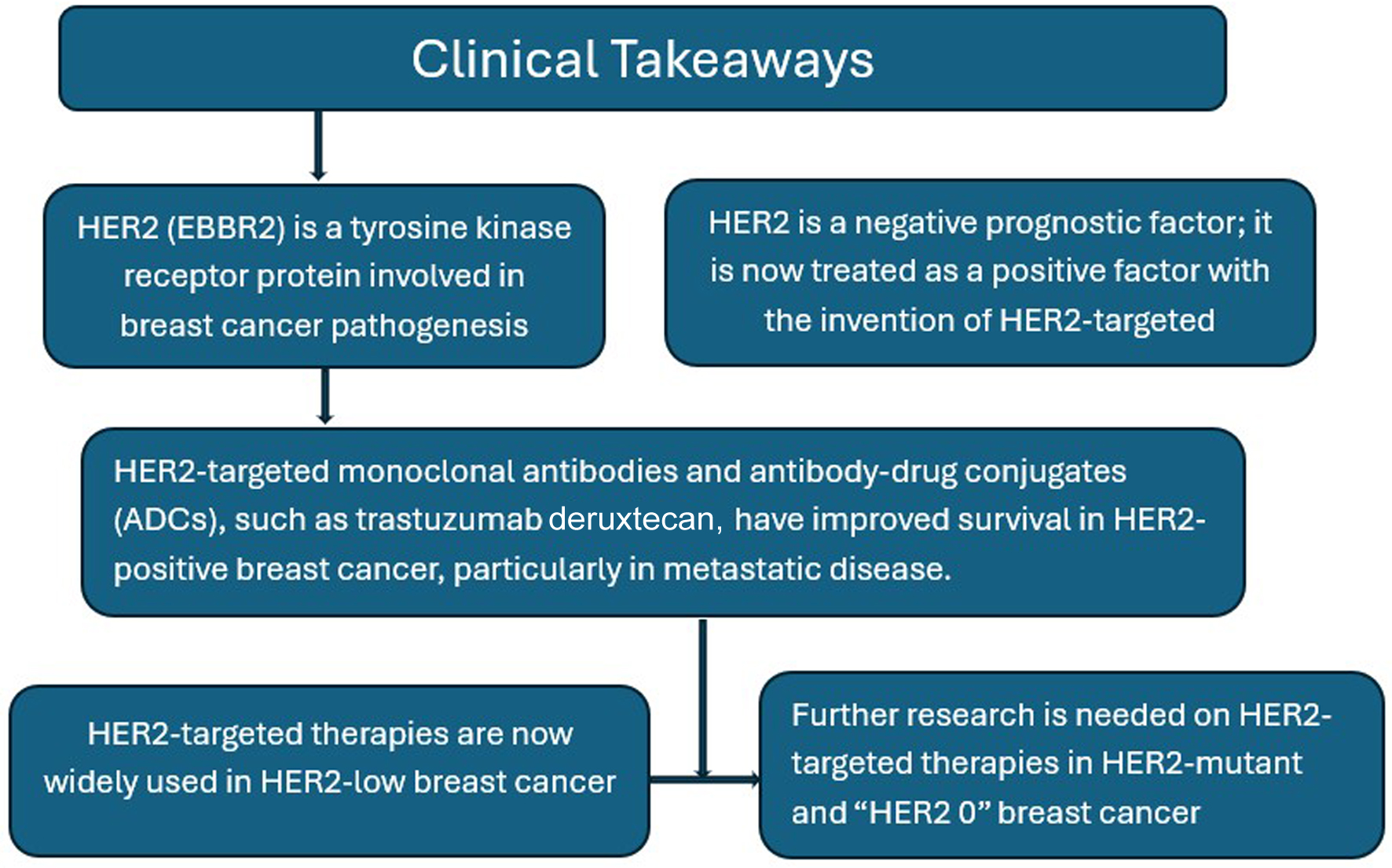
Table
| Drug class | Agent | Indication/subtype | CNS activity |
|---|---|---|---|
| ADCs: antibody-drug conjugates; CNS: central nervous system; HER2: human epidermal growth factor receptor 2; PARP: poly ADP ribose polymerase; TKIs: tyrosine kinase inhibitors. | |||
| ADCs | Trastuzumab deruxtecan (T-DXd) | HER2-positive and HER2-low | High intracranial response rate in active brain metastases |
| Trastuzumab emtansine (T-DM1) | HER2-positive | Modest CNS activity, less effective than T-DXd | |
| TKIs | Tucatinib (with trastuzumab + capecitabine) | HER2-positive, active/stable CNS metastases | Strong CNS activity; improves overall and progression-free survivals |
| Lapatinib (with capecitabine) | HER2-positive (limited use currently) | Modest CNS activity | |
| Neratinib (with capecitabine) | HER2-positive, progressive CNS metastases | Variable intracranial response rates | |
| Pyrotinib | HER2-positive | Promising CNS activity in early-phase trials | |
| PARP inhibitors | Olaparib | BRCA-mutated HER2-negative (especially triple-negative breast cancer) | Some CNS penetration, modest benefit |
| Talazoparib | BRCA-mutated HER2-negative | Limited CNS-specific data | |